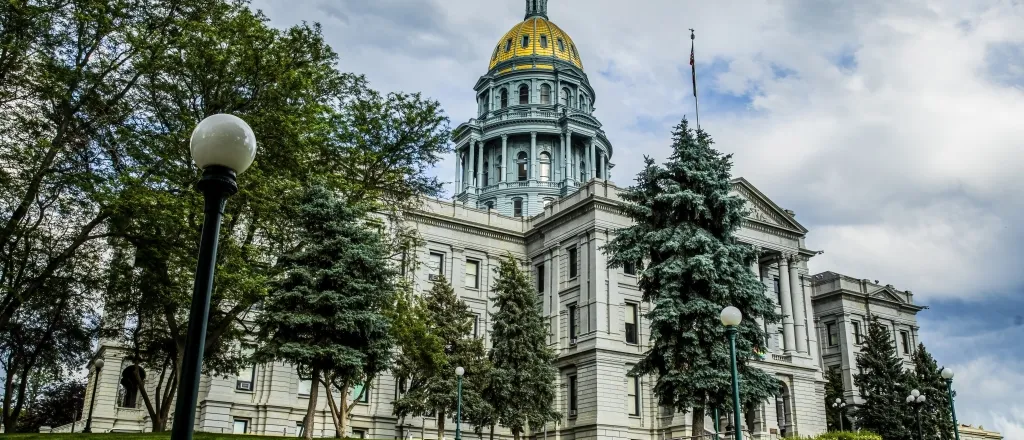
Colorado Senate debates state budget in tight financial year
© fotoguy22 - iStock - 1468912821
The Colorado Senate began debate Wednesday on the annual state budget bill, a spending plan that tries to close a $1.2 billion funding gap and absorb the rising cost of Medicaid in the state.
The bill, known as the “long bill,” and the dozens of accompanying pieces of legislation creates a $43.9 billion budget for the fiscal year that begins in July, about a 3.6 percent increase from last year.
That includes about $16 billion in general fund spending. As it stands, the general fund would end the next fiscal year with about $2.5 million above the required reserve amount.

“I’ve said this a number of times and I will keep saying it: This is a budget that no one will like but we can all be proud of,” Senator Jeff Bridges, a Greenwood Village Democrat, told his colleagues in a caucus meeting on Tuesday. “That is because we took a $1.2 billion-in-the-hole starting point and have managed to deliver a budget that maintains our commitment to K-12, maintains our commitment to Medicaid and maintains our commitment to higher ed. We have done that largely through some pretty painful ongoing cuts, combined with one-time transfers.”
The budget includes $150 million in new K-12 spending and a 1.6 percent Medicaid provider rate increase. Those are lower increases than advocates hoped for, but it is not the apocalyptic scenario some feared. The larger picture of education funding is left to the School Finance Act, which has not yet been introduced.
The Senate gave preliminary approval to the budget Wednesday night. It still needs to undergo a formal recorded vote before heading to the House for consideration.
It is written by the six-member, bicameral Joint Budget Committee, which includes Democrats and Republicans, after months of meetings and presentations from state departments and agencies. The primary goal this year was to craft a balanced budget as required by the state constitution while facing down a massive funding gap created by ballooning costs of state programs like Medicaid.
Part of the issue is that Colorado is constrained by the Taxpayer’s Bill of Rights, which restricts how much revenue the state can keep based on inflation and population growth. That revenue cap is not rising as fast as those program costs, at the same time pandemic-era federal funding dries up. This year, the general fund appropriation for the Department of Health Care Policy and Financing, which administers Medicaid, is larger than the one for the Department of Education for the first time. It would grow by 6.8 percent under the proposed budget.
But TABOR limitations should not be blamed for the budget woes, Republicans argue. Rather, they say the blame should be on the expanding state government and the associated spending.
“We’ve created a structural deficit with the way we’ve been spending over the last six years. We need to restrain our spending, not claim that we need more money,” Minority Leader Paul Lundeen, a Monument Republican, said ahead of debate on Wednesday.
A dozen departments reduced
Most of Wednesday was spent debating amendments to the long bill, attempts by individual lawmakers to put their mark on the budget and signal the programs and investments that are important — or not — to them. That ranged from failed amendments to cease funding transgender health care in the Department of Corrections to a successful one that would create more spending for Supplemental Nutrition Assistance Program administration.
The House will vote on its own series of amendments to the long bill and then the bill will head to a conference committee made of JBC members. It’s rare that budget amendments stick around until the final version that heads to the governor’s desk.
Overall, about a dozen departments will see a budget reduction compared to last year.

© iStock - marchmeena29
The budget balances itself by proposing various repeals and adjustments to current programs, including some that were only recently created through legislation. One cut changes the state’s responsibility to cover 75 percent of phone calls for incarcerated people, instead of 100 percent as passed into law in 2023, and would save about $2.3 million. Another repeals the Kidney Disease Task Force formed in 2021.
The state’s transportation department is poised to absorb a large share of the budget cuts. One cut would slash about $64 million in the budget by adjusting the schedule of transfers of general fund money to the State Highway Fund, which was created through 2021 legislation that requires a certain amount of investment over a decade. The state will eventually meet that investment obligation, but on an adjusted schedule. It wouldn’t be on the hook for $50 million earmarked for next year, for example.
The budget would also eliminate $7 million for the Revitalizing Main Street program, which helps local communities improve their downtown infrastructure.
And it takes back about $71 million in awarded transportation grants to local governments for small-scale improvements like bike lanes and walking paths. That money has been awarded but the projects are not under contract.
“These are great investments, valuable stuff. But given the budget shortfall we have this year, we identified this as a place where an investment we made some years ago, we can probably put those dollars to better use this year,” Bridges said. “If you can find $72 million worth of cuts somewhere else, then let’s talk. But this is the single largest piece we will be transferring into the general fund.”
About $34 million would be cut from the Healthy School Meals for All program in the Department of Education, which provides free breakfast and lunch for public school students. It leaves $8 million to sustain the program until December. Voters will likely face a ballot question this fall proposing to raise more tax dollars to fund the program.
Senators wrestled with a cut that would repeal Medicaid coverage for services provided by community health workers as defined in a 2023 law, which would save about $11.7 million in the upcoming budget year and $13.7 million in the 2026-2027 fiscal year. That reimbursement program was passed in 2023 and was set to be implemented starting this July.
An amendment to fund community health workers for at least the first year using excess general fund reserve was approved.
“We know the benefits that community health workers are to all our communities, whether it’s Front Range or rural. They offer wraparound services, whether it’s social services, transportation, other things that lead to better outcomes for the people of Colorado,” said Senator Kyle Mullica, a Thornton Democrat.
Democrats control strong majorities in both the House and Senate.

















